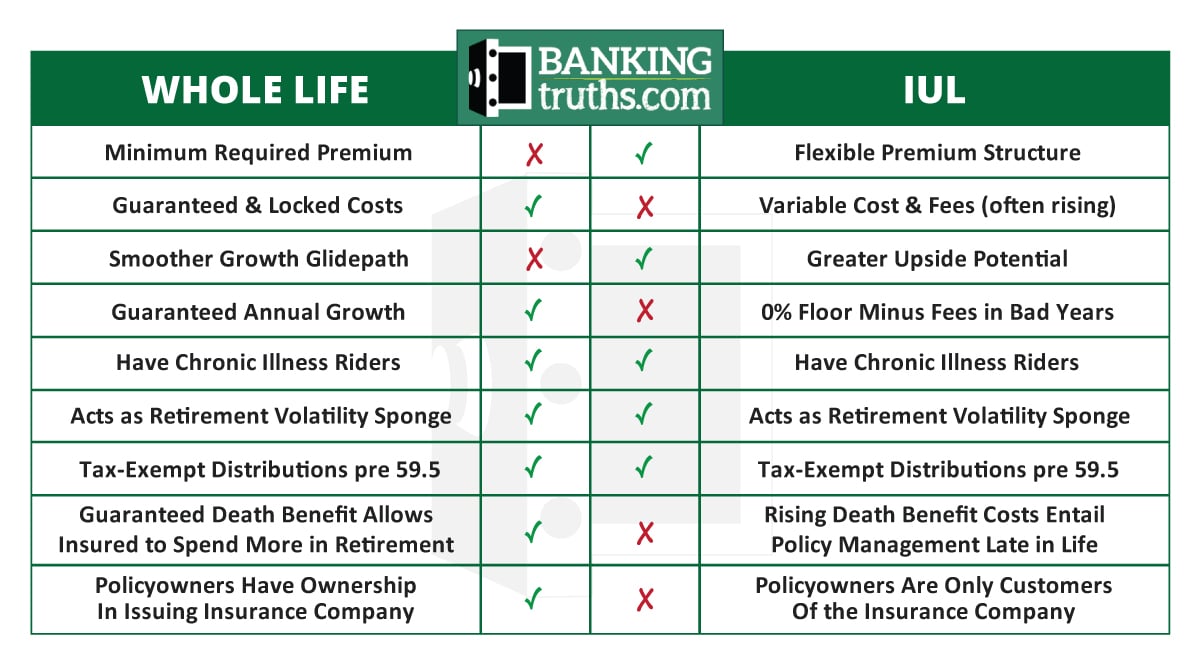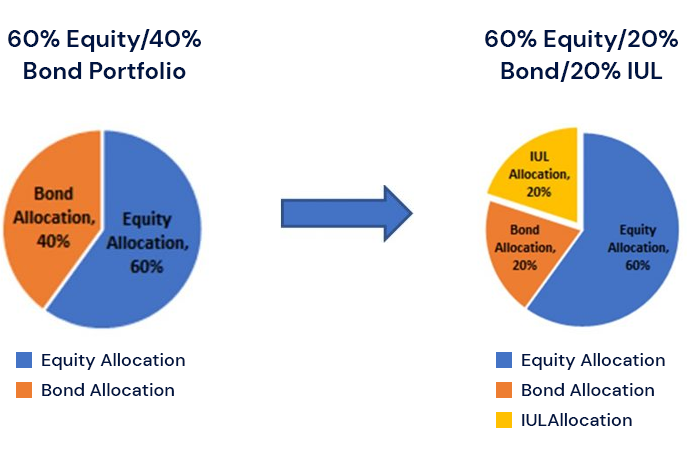All Categories
Featured
Table of Contents
Do they compare the IUL to something like the Vanguard Overall Stock Market Fund Admiral Shares with no tons, a cost proportion (EMERGENCY ROOM) of 5 basis points, a turn over ratio of 4.3%, and a remarkable tax-efficient document of circulations? No, they contrast it to some terrible proactively managed fund with an 8% lots, a 2% ER, an 80% turn over ratio, and a terrible document of temporary resources gain circulations.
Common funds usually make yearly taxed circulations to fund proprietors, even when the value of their fund has actually gone down in value. Shared funds not only need income coverage (and the resulting yearly taxes) when the common fund is going up in worth, yet can also impose income tax obligations in a year when the fund has actually dropped in worth.
That's not how mutual funds work. You can tax-manage the fund, gathering losses and gains in order to reduce taxable distributions to the investors, but that isn't somehow going to alter the reported return of the fund. Just Bernie Madoff kinds can do that. IULs stay clear of myriad tax traps. The ownership of mutual funds might call for the common fund owner to pay approximated taxes.

IULs are very easy to place to make sure that, at the proprietor's death, the beneficiary is not subject to either revenue or inheritance tax. The same tax decrease methods do not function virtually also with mutual funds. There are numerous, frequently expensive, tax traps linked with the moment acquiring and marketing of shared fund shares, catches that do not relate to indexed life insurance policy.
Possibilities aren't very high that you're mosting likely to undergo the AMT as a result of your common fund distributions if you aren't without them. The remainder of this one is half-truths at finest. While it is true that there is no earnings tax due to your successors when they inherit the proceeds of your IUL plan, it is likewise true that there is no earnings tax due to your successors when they inherit a common fund in a taxed account from you.
Smart Universal Life Insurance
There are better methods to avoid estate tax issues than buying investments with low returns. Mutual funds may cause earnings taxes of Social Safety and security advantages.

The growth within the IUL is tax-deferred and may be taken as tax obligation complimentary revenue via car loans. The plan proprietor (vs. the common fund supervisor) is in control of his/her reportable income, hence enabling them to lower or also eliminate the taxation of their Social Security advantages. This one is fantastic.
Right here's an additional very little issue. It holds true if you get a mutual fund for state $10 per share just before the distribution date, and it distributes a $0.50 distribution, you are after that mosting likely to owe tax obligations (most likely 7-10 cents per share) regardless of the reality that you haven't yet had any gains.
In the end, it's really about the after-tax return, not exactly how much you pay in tax obligations. You're likewise probably going to have more cash after paying those taxes. The record-keeping needs for owning mutual funds are dramatically more intricate.
With an IUL, one's records are maintained by the insurer, duplicates of annual statements are sent by mail to the owner, and distributions (if any) are amounted to and reported at year end. This is likewise sort of silly. Obviously you must keep your tax obligation records in instance of an audit.
Cost Of Insurance Increase Universal Life
All you have to do is push the paper into your tax obligation folder when it appears in the mail. Barely a factor to buy life insurance policy. It's like this person has actually never purchased a taxable account or something. Mutual funds are typically component of a decedent's probated estate.
Additionally, they are subject to the hold-ups and costs of probate. The profits of the IUL policy, on the other hand, is constantly a non-probate circulation that passes outside of probate straight to one's called beneficiaries, and is therefore exempt to one's posthumous financial institutions, undesirable public disclosure, or comparable hold-ups and costs.
We covered this under # 7, however just to evaluate, if you have a taxed common fund account, you should put it in a revocable trust (or perhaps much easier, make use of the Transfer on Death classification) in order to stay clear of probate. Medicaid incompetency and lifetime earnings. An IUL can supply their proprietors with a stream of income for their entire lifetime, no matter of for how long they live.

This is useful when organizing one's affairs, and converting properties to revenue prior to an assisted living facility arrest. Mutual funds can not be converted in a comparable fashion, and are generally taken into consideration countable Medicaid properties. This is one more foolish one promoting that inadequate individuals (you recognize, the ones who need Medicaid, a federal government program for the bad, to spend for their assisted living home) need to make use of IUL rather than shared funds.
Iul 7702
And life insurance looks awful when compared fairly against a pension. Second, individuals who have money to get IUL above and past their pension are going to need to be awful at managing cash in order to ever receive Medicaid to spend for their assisted living facility expenses.
Persistent and incurable illness motorcyclist. All policies will permit a proprietor's very easy accessibility to cash money from their plan, usually forgoing any kind of surrender penalties when such people experience a significant illness, require at-home care, or come to be constrained to a nursing home. Mutual funds do not offer a similar waiver when contingent deferred sales fees still use to a shared fund account whose proprietor needs to offer some shares to fund the costs of such a remain.
Variable Universal Life Insurance Calculator
You obtain to pay more for that benefit (cyclist) with an insurance coverage plan. What a large amount! Indexed universal life insurance policy supplies death advantages to the beneficiaries of the IUL owners, and neither the owner nor the beneficiary can ever lose money because of a down market. Shared funds provide no such guarantees or fatality advantages of any type of kind.
Currently, ask yourself, do you really require or want a death advantage? I certainly don't need one after I get to financial self-reliance. Do I desire one? I mean if it were inexpensive enough. Of training course, it isn't low-cost. Generally, a buyer of life insurance pays for the true price of the life insurance coverage advantage, plus the prices of the plan, plus the earnings of the insurance provider.
Pros And Cons Of Iul
I'm not completely sure why Mr. Morais tossed in the entire "you can't lose money" again below as it was covered rather well in # 1. He simply wanted to repeat the most effective selling factor for these points I suppose. Once more, you don't lose nominal bucks, however you can shed real dollars, in addition to face serious chance price due to reduced returns.

An indexed global life insurance coverage policy proprietor may exchange their policy for a completely different plan without activating revenue tax obligations. A mutual fund proprietor can not relocate funds from one mutual fund business to one more without offering his shares at the previous (thus setting off a taxable occasion), and buying brand-new shares at the latter, frequently subject to sales charges at both.
While it holds true that you can trade one insurance plan for another, the reason that people do this is that the first one is such a dreadful policy that even after acquiring a brand-new one and going with the very early, adverse return years, you'll still come out in advance. If they were marketed the right policy the very first time, they shouldn't have any kind of desire to ever trade it and undergo the early, adverse return years again.
Latest Posts
What Is Better Term Or Universal Life Insurance
Guaranteed Universal Life Quotes
Universal Life Insurance Canada